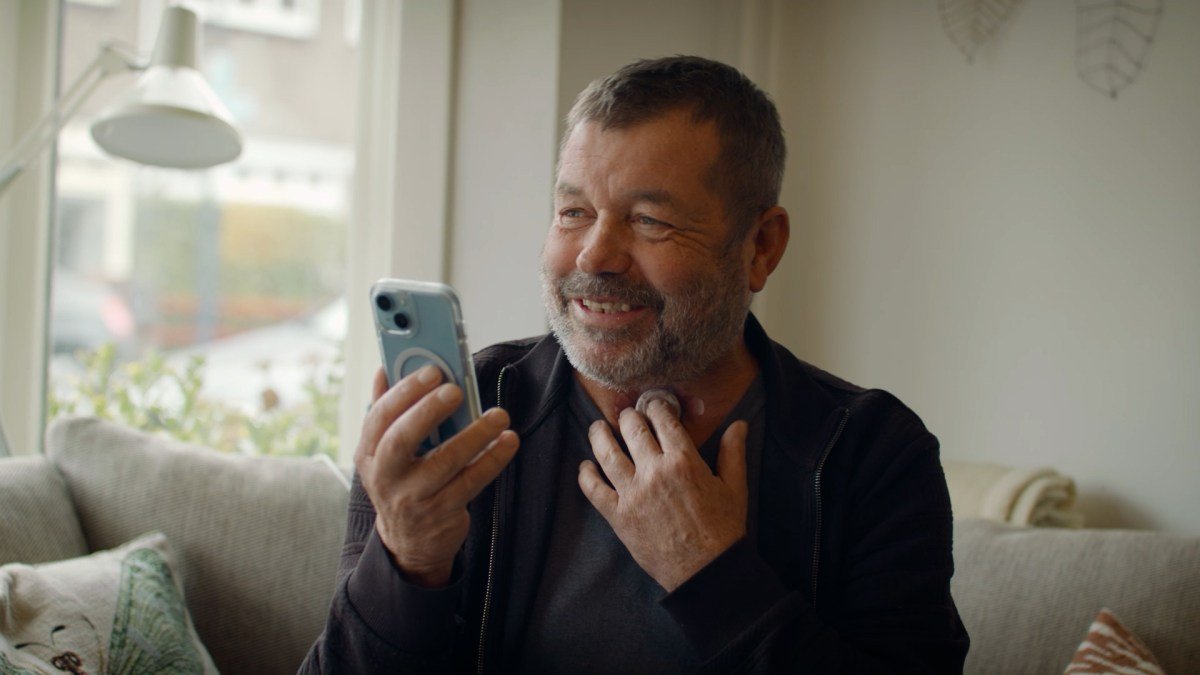Having a Voice: Whispp’s Revolutionary Approach to Communication
Communication is a vital aspect of human connection. The ability to express oneself and be understood is a powerful tool, but for those with speech disorders and voice disabilities, communication can be a major struggle. Whispp is working to change this with their groundbreaking AI-powered assistive speech and phone-calling app.
At CES 2024, Whispp unveiled their newest phone-calling feature, utilizing AI technology to convert whispered and vocal cord-impaired speech into a user’s natural voice in real time.
“Voice disabilities and speech disorders significantly impact a person’s life and happiness,” says Whispp co-founder and CEO Joris Castermans. “Our solution aims to empower individuals in their daily lives and work. We’re not just transforming voices; we’re advancing communication by making it accessible to all and enhancing quality of life.”
This revolutionary technology sets Whispp apart from traditional voice conversion methods, as it is able to convert voiceless speech into natural and voiced speech in real-time through the use of AI. This makes the app scalable and language-independent. Additionally, users can even recreate their unique voice by providing recordings of their past or current healthy voice, adding a personalized touch to their communication.
Whispp caters to a broad range of voice types and conditions, from whispering to rough speech resulting from total laryngectomy after throat cancer. It is particularly effective for disorders where whispering can be beneficial, such as those caused by neurological changes in the speech system.
Interestingly, Whispp’s co-founder and CEO Joris Castermans has personal experience with one of these disorders. As someone who stutters, Castermans noticed that his stuttering significantly reduced when whispering. Research has shown that this is a common occurrence for individuals with severe stuttering, with a potential 85% decrease in stuttering frequency while whispering. Additionally, those with spasmodic dysphonia or recurrent respiratory papillomatosis also speak more fluently when whispering.
In contrast to traditional speech-to-text approaches, Whispp’s real-time speech conversion eliminates barriers to natural communication by providing a smooth and seamless conversational flow without noticeable latency. This is demonstrated in a powerful video produced by the company, showcasing the impact of their technology.
“We’ve been researching this for five years, and our product launch today marks a huge milestone. Today’s product launch is for phone call functionality. You can download our iOS or Android app from the app stores, and try it out yourself,” shares Akash Raj, CTO at Whispp, in an interview with TechCrunch at CES. “We have a subscription-based model, and currently, we have a 50% early-bird sale, putting the cost at $9.99 per month.”
In 2023, Whispp introduced asynchronous message texts, allowing messages to be exchanged at the recipient’s pace and adding flexibility and convenience to the platform. Now, with their new product features, Whispp can accommodate an even wider range of voice types and conditions. This includes the ability to communicate clearly in noisy environments and maintaining clarity of speech regardless of external disturbances.
Personally, I can’t help but think about a time when I spoke at a wedding on behalf of my best friend’s father. Not long before the wedding, her father had a laryngectomy. It was a powerful and beautiful moment to speak for someone else in such an emotional moment. However, as I write this, I can’t help but wish that Whispp’s technology had been available then, so her father could have spoken to his son and new daughter-in-law in his own voice.
At CES this year, Whispp brings a breath of fresh air. As someone passionate about technology, I love when it provides real solutions to human problems. Whispp is a true beacon of hope for individuals with speech disorders and voice disabilities, showcasing the transformative power of technology.








